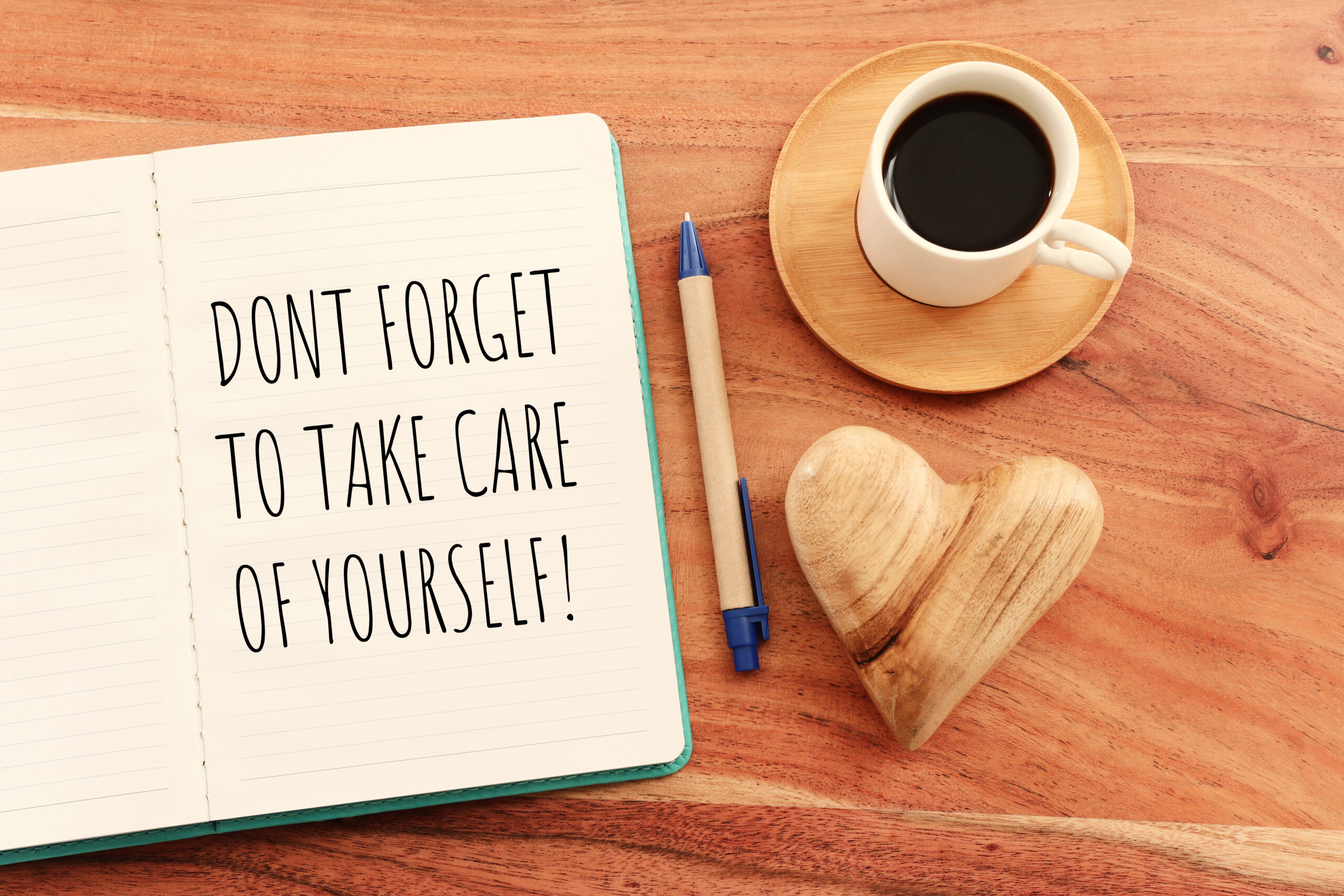
It’s an inescapable fact: Working as a teacher can be tough. As many as 77 percent of teachers report their jobs are frequently stressful, while 68 percent say they’re often overwhelmed.
So, is all hope lost? Not with these practical tips. We asked three experts for their favorite self-care practices — try one or all of them and see the difference a few adjustments can make.

Julie Underwood
Transform your routine into a ritual. “A routine is something we do every day, whether it serves us or not,” says Julie Underwood, a retired educator and Center for Teaching and Learning instructor. “But a ritual is something we do with intention, and we do it because it serves us and is meaningful to us.”
Underwood suggests beginning your day with a morning ritual. Think about a recent good day: What time did you go to bed the night before? When did you get up? Did you have a really great cup of coffee, take a walk, journal? Try incorporating whatever made your day amazing into a morning ritual that feeds your mood and boosts your outlook. You don’t need to incorporate every idea you see on the internet or hear on a podcast, Underwood says. Stick to what works for you.
Do more by doing less. Underwood suggests throwing out your to-do list. Instead, focus on the top three things you need to get done every day — and do not add to your Big Three, as Underwood calls them, once you’ve decided on them. If you’re hesitant on which three to pick, Underwood says, choose the tasks that will make your day feel like a win. You’ll soon swap out your overwhelming list for actual progress.

Tracylea Balmer
Don’t recreate the wheel (or the lesson plan). Check in with your colleagues in your building, your district and your union before painstakingly crafting a hyper-detailed lesson plan. “Ask for support,” says Tracylea Balmer, Region 3 director and frequent trainer. “See what’s out there. Educators are happy to share.”
Set communication boundaries … Early in the year, make parents aware of your office hours, how often they can expect to hear from you and response times. Balmer suggests crafting a message like this and sharing it with parents:
This year, I will be using Class Dojo and class newsletter to provide regular updates and important information about our classroom. While I will do my best to respond to emails as promptly as possible, please understand that my primary focus is on teaching your children. My response times may vary. Thank you for your understanding and support.
… and stick to them. Don’t let work intrude on your personal time. If an after-contract work hours email or text comes through, save your response for tomorrow. “Future you will thank you,” Balmer says.

RT Duke
Remember to breathe. RT Duke, a member of the Boise Education Association and recent trainer at Summer Institute, says most of us hold our breath or take shallow breaths when we’re busy or stressed, keeping the body in fight-or-flight response. Duke recommends checking in on your breath throughout the day — if you’re not breathing deeply, inhale for five or six seconds, then breathe out through your nose for the same length of time.
“It helps your nervous system recognize there’s not an immediate threat or danger that’s out to get you,” Duke says.
Be aware of your thoughts. Most of us have a constant narrative running through our brains all day. But when was the last time you questioned your thoughts?
“We often identify with thoughts that create emotions within us that then force us into grieving or panicking or having anxiety,” Duke says.
Making those thoughts — and the emotions that follow — easier to handle is as simple as tuning into yourself and noticing your thoughts throughout the day. “You can say, hey, there is stress,” he says. “There is anxiety. There is fear. It creates a small distance between you and the emotion, and that can have a massive impact.”
Remember: There’s only one thing you can control. As much as we might want to, we can’t control the actions of others – and that’s especially true in education, which includes a lot of outside variables, Duke says. By checking in with yourself, breathing, and becoming more aware of your inner state, you can loosen your grip on the stressors you can’t influence.
“You’ve only got one person that you can control for: you,” he says.
Be compassionate toward yourself. Change takes time. “It is so easy to throw it all out the window,” Balmer says. “And then you have to back up, stop the car, get out, pick it up, and start over. There may or may not be crying and cursing at one, or all, of these points.”
As you build new habits and mindsets, give yourself the grace you would give your students. Encourage yourself for incremental process rather than berating yourself when you feel change isn’t happening quickly enough.
“If we gave ourselves some student care, then we would be in much better shape,” Underwood says.



